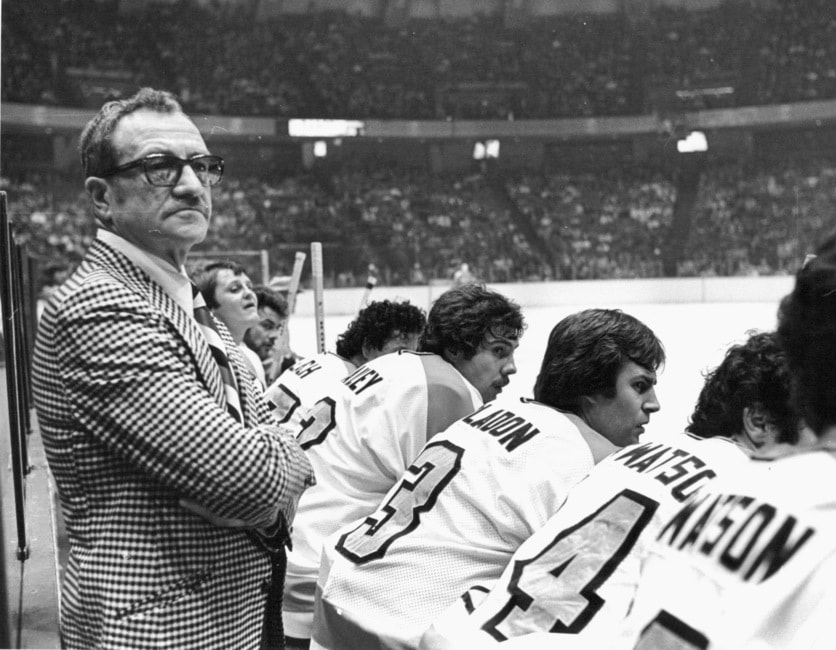The Philadelphia Flyers finished in last place in the Metropolitan Division in 2021-22. They had the fourth-worst record in the NHL. They now enter an offseason in which the plan to “aggressively retool” their roster or rebuild it completely will dominate the conversation. In any case, it is tough to imagine any scenario in which they enter the 2022-23 season as favorites to earn a playoff spot.
If skepticism about the upcoming offseason wasn’t enough, the current landscape across the NHL doesn’t favor the likelihood of the Flyers returning to contention. They have found themselves in the thick of tough division and conference landscapes for decades, but the NHL in 2022 is as competitive as it’s been in 105 years of existence.
Context of Flyers History
The Flyers must face the harsh and unforgiving reality of the modern era. Their only two Stanley Cups came against a field of 15 opponents in 1973-74 and 17 opponents in 1974-75. Their waning success since the era of the Broad Street Bullies aligns with the continuation of NHL expansion. While they still advanced to three Stanley Cup Finals during the 1980s, they never reclaimed the sport’s ultimate prize. Their waning success since aligns with the continuation of NHL expansion.

Their resurgence in the mid-1990s led to a competitive era of 16 playoff appearances in 17 seasons through 2012. However, the unforgiving nature of the salary cap era caught up to them. They fell into mediocrity because of their inability to assemble deep rosters that had a formidable chance to make a run in the Stanley Cup Playoffs. The league expanded to 32 teams beginning in 2021-22 while the Flyers plummeted into the bottom tier. A franchise once celebrated for its consistent contention has won one playoff series in the past decade.
When Philadelphia hired Chuck Fletcher as their general manager in 2019, he spoke about the Flyers as an “iconic brand” and a “historic franchise” that needed to rejoin the powers of the NHL. The optimism was a good sentiment to project to a fan base starved for a return to glory, but a favorable market and a rich tradition do very little to help NHL franchises in the modern era. The disadvantages for franchises from “non-traditional hockey markets” aren’t slowing down teams like the Tampa Bay Lightning, Florida Panthers, and Carolina Hurricanes.
Stanley Cup Playoffs in 2022, 2023
Jim Boomer Gordon spoke on the Jeff Marek Show last week about how making a leap to the top of the NHL standings is as hard as it’s ever been. Of the 16 teams in the 2022 Stanley Cup Playoffs, 12 have now qualified at least three years in a row. Nine of the 16 teams have qualified four years in a row.
Around the time the Flyers slipped out of contention in January, the Eastern Conference playoff picture became clear as day. The same eight teams who earned playoff positions in the East have safely occupied spots since Jan. 2. The four Metropolitan qualifiers and four Atlantic qualifiers each finished with at least 100 points, the first time in NHL history that all eight teams in one conference field hit the century mark. The Washington Capitals finished in the eighth spot by a comfortable 16-point margin.

The decline of the Capitals and the Pittsburgh Penguins hasn’t materialized despite seemingly annual conversations about it. The two respective organizations continue to enjoy the advantages of proven top-end talent with Sidney Crosby at age 34 and Alexander Ovechkin at age 36. Philadelphia shouldn’t bet on rival teams faltering to open up playoff spots in the Metropolitan Division next season. The Boston Bruins have similarly maintained success with aging stars as a formidable foe in the Eastern Conference.
The Flyers finished with the worst record in the NHL in 2006-07, but an aggressive roster shuffle helped them reach the Eastern Conference Final the following season. The example of success will serve as a beacon of hope for Fletcher this summer, but the same parallel was identified last summer. That kind of turnaround is even less likely than it was 15 years ago. Since the 2012-13 season, 22 NHL teams have finished with a goal differential of minus-60 or worse. Only three of those teams qualified for the playoffs the following season. The Flyers finished the season with a cringe-worthy minus-87 goal differential.

They also aren’t the likeliest team to supersede one of the eight Eastern Conference playoff teams. The New York Islanders can more reasonably call for a mulligan on the 2021-22 season and hope to reset for a better chance to contend in 2022-23. After advancing to the league’s semifinal round in two consecutive seasons, the Isles played 13 consecutive road games to start the season because of complications with their arena. They failed to get their footing partly because of issues related to COVID-19, and they slipped into a lost season. However, they still boast a formidable roster that showed excellent chemistry in the previous seasons.
The problems facing Fletcher and the Flyers this offseason won’t be easy to solve. They will need to acquire top-end talent from outside the organization and hope for significant improvement from players inside the organization if they have any chance to return to the playoffs at this time next year. It will be an uphill battle against 31 formidable opponents.

Colin Newby is a freelance journalist from Delaware County, PA covering the Philadelphia Flyers for The Hockey Writers. He is an encyclopedia of useless sports knowledge with an uncanny ability to rattle off Flyers goaltending stats from 2004 and every Stanley Cup winner during his lifetime. The depths of his knowledge stem from spending his entire life following the Flyers and the NHL, from fan favorites like the “Legion of Doom” and Claude Giroux to forgotten journeymen like Andy Delmore and Branko Radivojevič. Colin also covers the Philadelphia Eagles and works for 97.5 The Fanatic in Philadelphia.